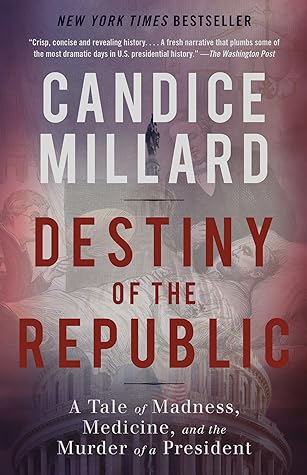More on this book
Community
Kindle Notes & Highlights
Read between
February 18 - February 20, 2024
“Of course I deprecate war,” he wrote, “but if it is brought to my door the bringer will find me at home.”
Great ideas travel slowly, and for a time noiselessly, as the gods whose feet were shod with wool. JAMES A. GARFIELD
A nation of immigrants, the United States found in Garfield a president who knew well the brutal indignities of poverty, and the struggle to overcome them. Between 1850 and 1930, the country’s foreign-born population would rise from more than two million to more than fourteen million. This flood of people, known as the “new immigrants,” came from a broader range of countries and with a greater number of languages than ever before. In Garfield’s humble origins, remarkable rise, and soaring erudition, they found justification for their sacrifices, and hope for their children.
“You were not made free merely to be allowed to vote, but in order to enjoy an equality of opportunity in the race of life,” Garfield had told a delegation of 250 black men just before he was elected president. “Permit no man to praise you because you are black, nor wrong you because you are black. Let it be known that you are ready and willing to work out your own material salvation by your own energy, your own worth, your own labor.”
Although he had made it clear from the moment he took office, even in his inaugural address, that he would not tolerate the discrimination he knew was taking place in the South, what he promised was not judgment and vengeance but help. The root of the problem, he believed, was ignorance, and it was the responsibility, indeed “the high privilege and sacred duty,” of the entire nation, North and South, to educate its people. Garfield’s plan was to “give the South, as rapidly as possible, the blessings of general education and business enterprise and trust to time and these forces.”


